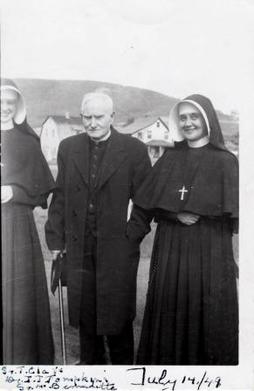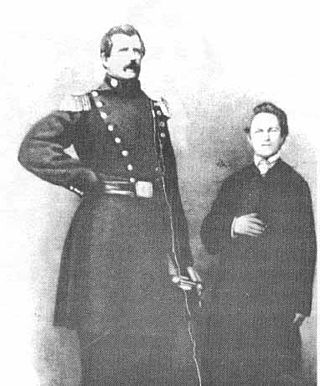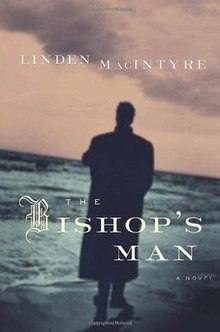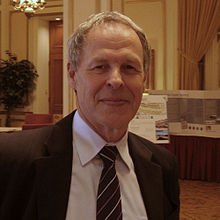
St. Francis Xavier University is a public undergraduate liberal arts university located in Antigonish, Nova Scotia, Canada. It is a member of the Maple League, a group of primarily undergraduate universities in Eastern Canada.

Antigonish is a town in Antigonish County, Nova Scotia, Canada. The town is home to St. Francis Xavier University and the oldest continuous Highland games outside Scotland. It is approximately 160 kilometres northeast of Halifax, the provincial capital.
Hugh Alan "Buddy" MacMaster was a Canadian fiddler. He performed and recorded both locally and internationally, and was regarded as an expert on the tradition and lore of Cape Breton fiddle music.

James John "Jimmy" Tompkins was a Roman Catholic priest who founded the Antigonish Movement, a progressive effort that incorporated adult education, cooperatives and rural community development to aid the fishing and mining communities of northern and eastern Nova Scotia, Canada. The Antigonish Movement later evolved into the Extension Department of St. Francis Xavier University.

Angus MacAskill was a Scottish-born Canadian giant. In its 1981 edition the Guinness Book of World Records stated he was the strongest man, the tallest non-pathological giant and the largest true giant in recorded history at 7 feet 9 inches (2.36 m), he also had the largest chest measurements of any non-obese man at 80 inches (203 cm). MacAskill was said to have accomplished feats of lifting a 2,800 lb (1,270 kg) ship's anchor to his chest and holding over 250 pounds (113 kg) with only three fingers.

James Morrison was the longest-serving bishop of the Diocese of Antigonish, Nova Scotia, Canada. Although one of the last powerful and austere Roman Catholic bishops in Canada, Morrison presided over a diocese that created one of the most successful Catholic social movements in Canada.

The Diocese of Antigonish is a Latin Church ecclesiastical jurisdiction or diocese of the Catholic Church in Nova Scotia, Canada. Its current diocesan ordinary is Wayne Joseph Kirkpatrick.

The Antigonish Movement blended adult education, co-operatives, microfinance and rural community development to help small, resource-based communities around Canada's Maritimes to improve their economic and social circumstances. A group of priests and educators, including Father Jimmy Tompkins, Father Moses Coady, Rev. Hugh MacPherson and A.B. MacDonald led this movement from a base at the Extension Department at St. Francis Xavier University in Antigonish, Nova Scotia.

Colin Francis MacKinnon was a Canadian Roman Catholic Archbishop and founder of St. Francis Xavier University and Saint Ninian's Cathedral.
William Fraser was a Canadian Roman Catholic priest and the first Bishop of Halifax in Nova Scotia from 1842 to July 20, 1845. He was Bishop of Arichat from September 22, 1844. The difference in the dates is due to the splitting of the diocese into two dioceses effective September 22, 1844, and Fraser remaining Bishop of Halifax until such time that William Walsh took formal possession of the Diocese of Halifax.

Alexander MacDonald was a Canadian Roman Catholic priest, educator, author, and Bishop of Victoria, British Columbia.

Linden Joseph MacIntyre is a Canadian journalist, broadcaster and novelist. He has won ten Gemini Awards, an International Emmy and numerous other awards for writing and journalistic excellence, including the 2009 Scotiabank Giller Prize for his 2009 novel, The Bishop's Man. Well known for many years for his stories on CBC's The Fifth Estate, in 2014 he announced his retirement from the show at age 71. His final story, broadcast on November 21, 2014, was "The Interrogation Room" about police ethics and improper interrogation room tactics.
MacAskill, also spelt Macaskill and McCaskill is a surname. It is an Anglicisation of the Gaelic Mac Asgaill, meaning "son of Asgall". The Gaelic name Asgall is a reduced form of the Old Norse personal name Ásketill, son of Torquil. Asketil was the last Viking King of Dublin, Ireland. He died circa 1171-2, resisting the English invaders of Ireland under King Henry II. He had placed his family under the protection of the Norse King of Man, and his grandson, Gilbert MacAsgaill, led a party sent by the King of Man to occupy and hold Dunscaith Castle, on the Sleat Peninsula, Isle of Skye. These are the first members of the name we can find in Scotland. The name is borne by a noted family on Skye, the MacAskills of Rubha an Dùnain, who historically followed the MacLeods of Dunvegan, possibly serving them as early as the fourteenth century. In Gaelic the MacAskills are known as Clann t-Ascaill, and Clann t-Asgaill. In Scottish Gaelic, the surname is rendered MacAsgaill. In Irish, the surname is rendered Mac Ascaill. Early forms of the name on record in Scotland are Mackaiscail, Mackaiscal, and Macaiskill. An early form of the name in England is Mac A skil.
Raymond John Lahey was a Canadian former priest and former bishop of the Catholic Church. He was Bishop of the Diocese of Antigonish, Nova Scotia, from 2003 to 2009. Lahey was charged in 2009 with the importation of child pornography. He was suspended from the exercise of his priestly and sacramental functions, resigned as bishop in 2009, and was laicized by Pope Benedict XVI in 2012.
There have been various cases of sexual abuse in the Diocese of Antigonish on the part of Roman Catholic clergy.

Causeway: A Passage from Innocence is a non-fiction book, written by Canadian writer Linden MacIntyre, first published in August 2006 by HarperCollins. In the book, the author recounts the 1950s construction of the Canso Causeway, linking Cape Breton to mainland Nova Scotia. MacIntyre reflects on changing ways of life and his relationship with his father. Causeway is a strong narrative of changing times and vanishing landscapes.
Bruce MacKinnon is a Canadian editorial cartoonist for The Chronicle Herald in Halifax, Nova Scotia. He is the recipient of several awards of excellence for his work.
A fixer is someone who carries out assignments for — or is skillful at — solving problems for others. The term has different meanings in different contexts. In British usage the term is neutral, meaning "the sort of person who solves problems and gets things done". In journalism, a fixer is a local person who expedites the work of a correspondent working in a foreign country. Use in American English implies that methods used to conceal their clients' identities or potential scandals are almost certainly of questionable morality, if not legality. A fixer who disposes of bodies or "cleans up" physical evidence of crime is often more specifically called a cleaner. In sports, the term describes someone who makes arrangements to manipulate or pre-arrange the outcome of a sporting contest.
Iain mac Ailein, or John MacLean was a poet and highly important figure in both Scottish Gaelic literature and in that of Canadian Gaelic. Before emigrating with his family to Nova Scotia in 1819, MacLean had served as the Chief Bard to the 15th Chief of Clan MacLean of Coll. Following his arrival in the New World, MacLean remained a prolific poet and composed one of the most famous and most popular Scottish Gaelic emigration poems, Òran do dh' Aimearaga, which is also known as, A' Choille Ghruamach. Robert Dunbar has dubbed MacLean, "perhaps the most important of all the poets who emigrated during the main period of Gaelic overseas emigration", which took place between 1730 and 1860.












